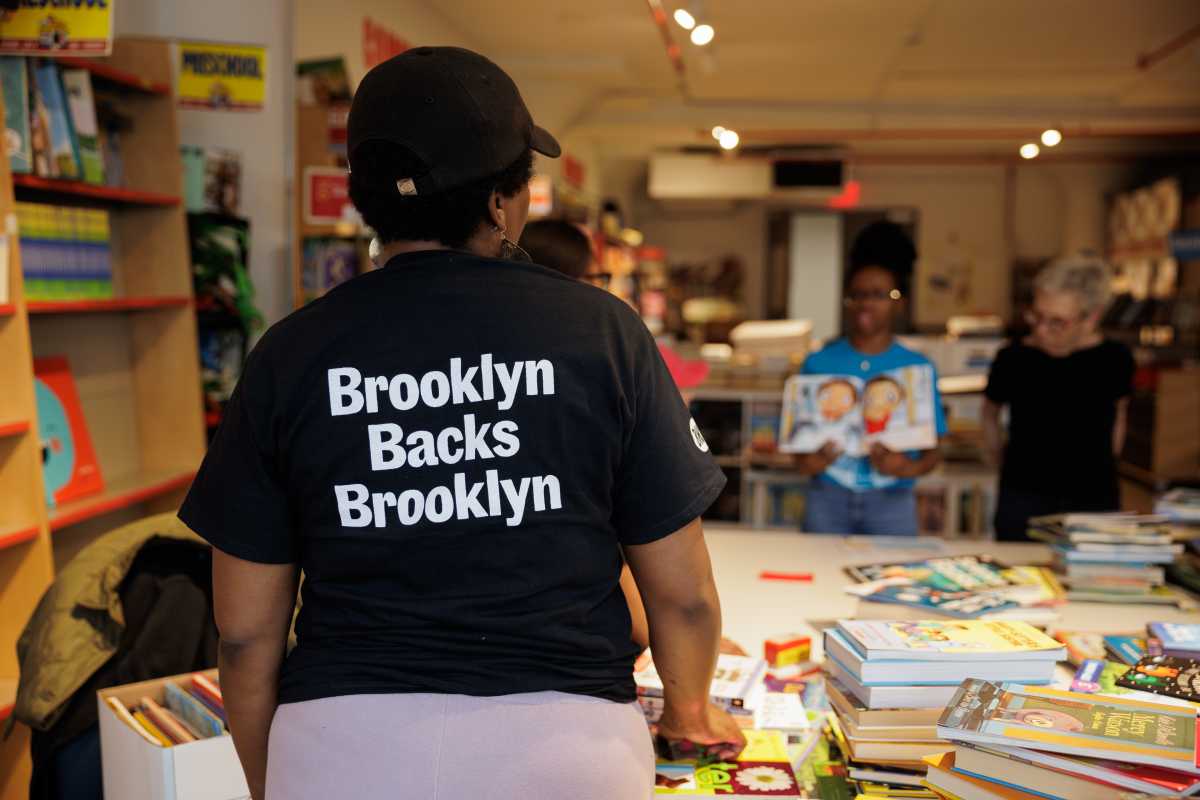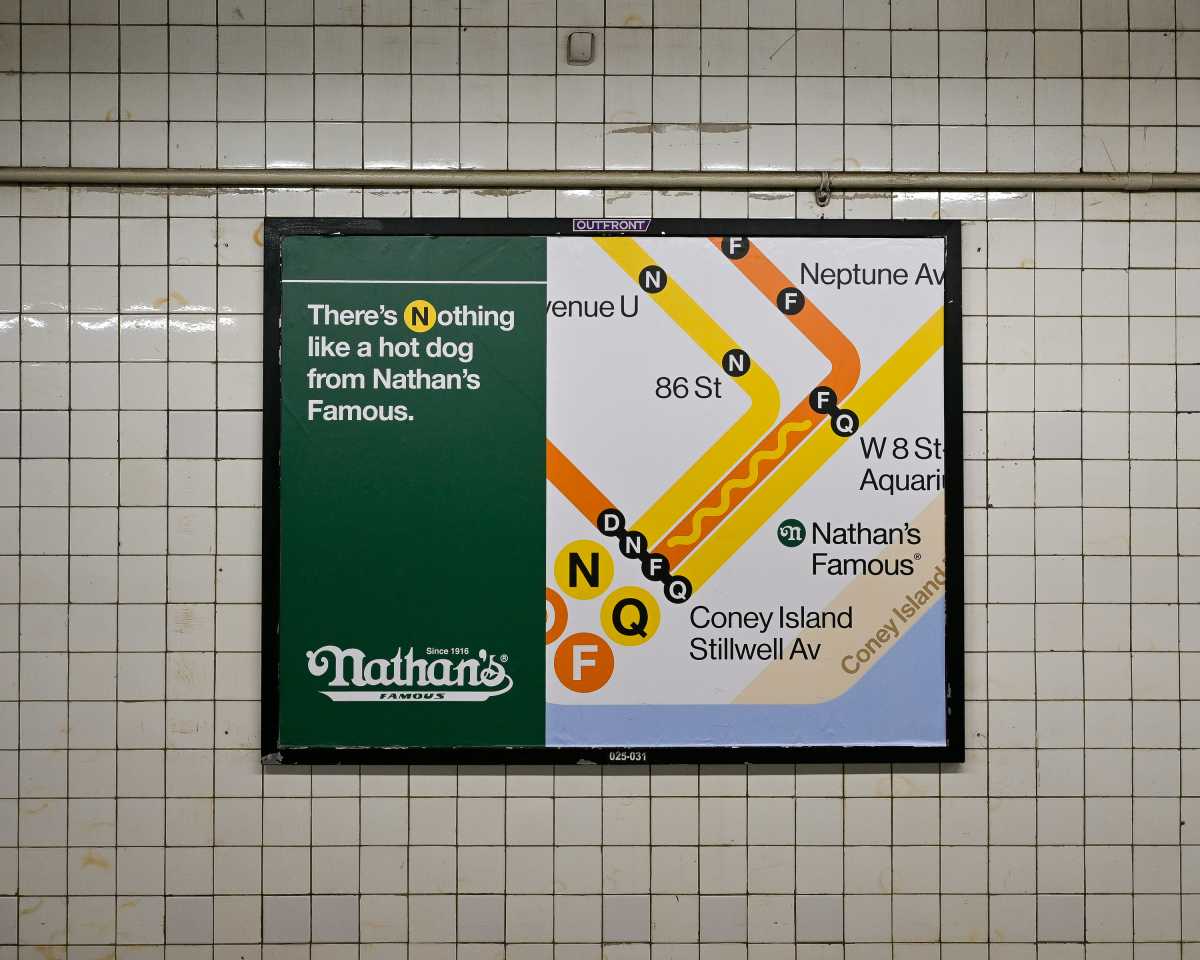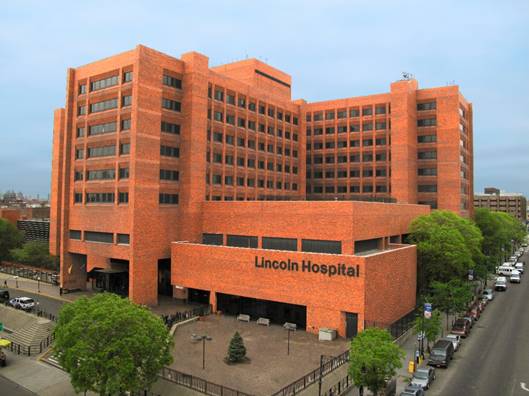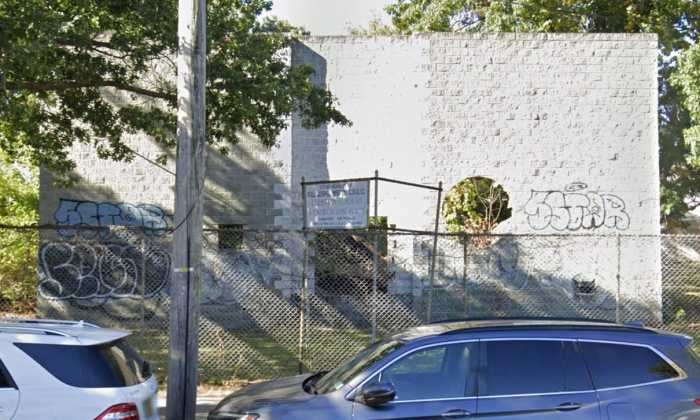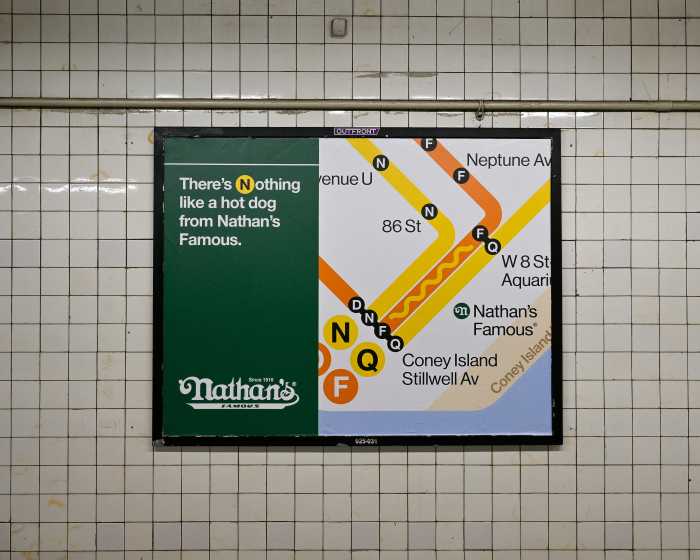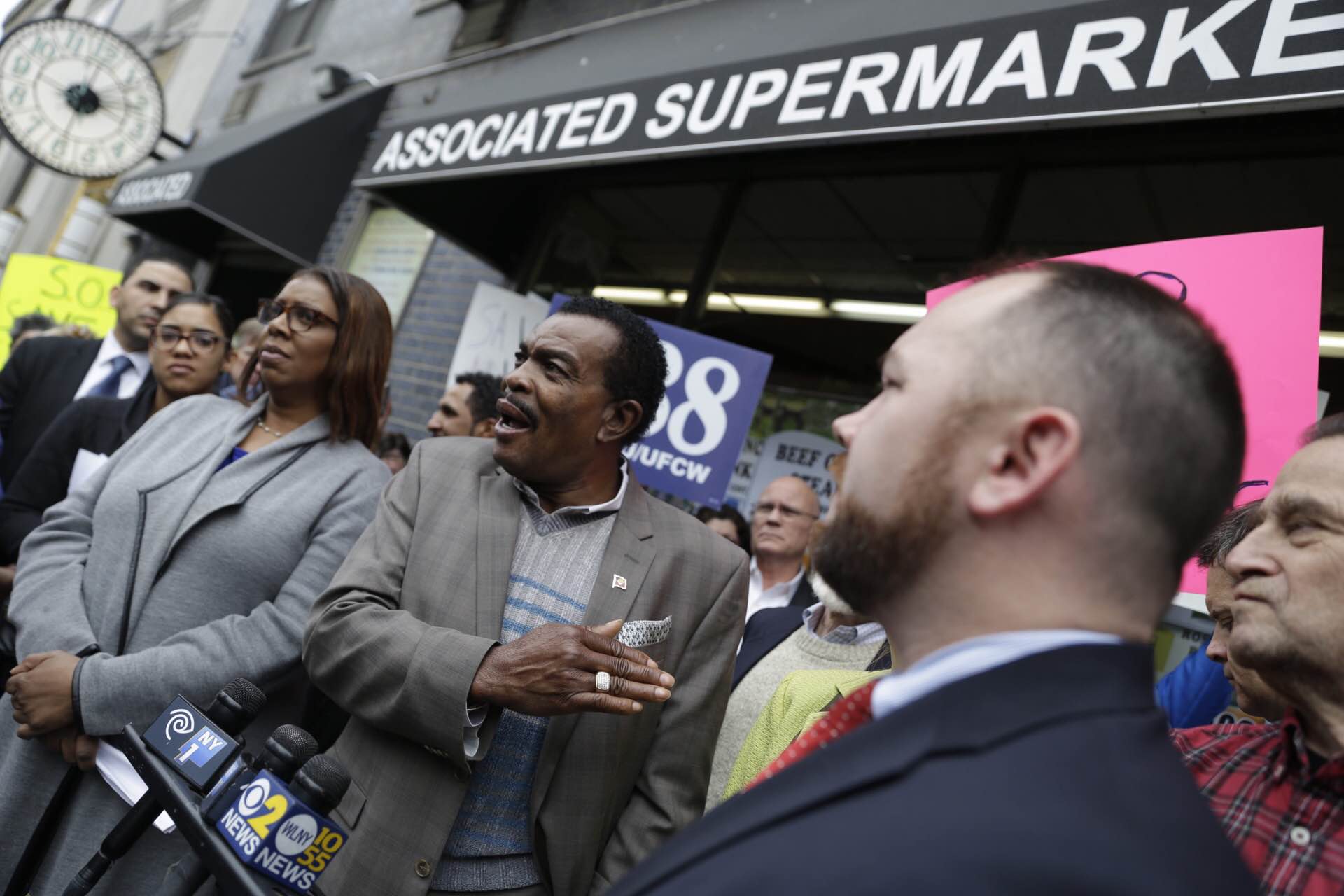
BY YANNIC RACK | Dozens of Chelsea and West Village residents rallied with local politicians on W. 14th St. last week to protest the imminent closure of their local supermarket, whose owners said they would be forced to shut its doors due to a sky-high new lease that would more than triple their rent.
“We’re not going to have a grocery store or a gas station left in the borough of Manhattan — and with all the shops, supermarkets and bodegas, we’re losing the souls of our neighborhoods,” Manhattan Borough President Gale Brewer told the crowd on Sun., Mar. 13, in front of the soon-to-be-shuttered Associated supermarket, at 255 W. 14th St., a neighborhood staple for almost three decades.
“We cannot be a mall. We are not Idaho, we are not Minnesota,” Brewer shouted, to applause. “We are the great Manhattan, with a diversity of businesses — mom-and-pop, owner-operated.”
The protest was organized by City Councilmember Corey Johnson, who also addressed the crowd alongside Brewer, Congressmember Jerrold Nadler, Public Advocate Letitia James, state Senator Brad Hoylman and Assemblymember Dick Gottfried.
In between chants of “Save Our Supermarket!” and signing petitions, the roughly 100 residents also listened to Gladwin Francis, one of the store’s co-owners, also known to some as “The Mayor of 14th St.” He said he and his partners met with their landlord three weeks ago to negotiate a new lease — only to find out their rent was due to rise from $32,000 a month to more than $100,000.
“What we had in mind, and what they wanted, was just impossible [to reconcile],” Francis said, referring to building owner Pan Am Equities, a part of the prominent Manocherian family’s real estate empire.
“We’ve been here for 27 years, we have never been late on our rent. We really, from the bottom of our hearts, hope that something can be done,” he said, adding that, otherwise, they would have to be out by May.
Francis said he opened the store with his partners in 1989, when the rent was still $10,000 a month and “nobody wanted to take the space.” More than just his daily job, he said the supermarket had put his kids through college and provided him with a second home in the neighborhood.
“This store, it’s like my baby. This is my lifeblood,” he said, speaking after the protest, standing on the sidewalk as longtime customers filed in and out carrying bags of produce. “For it to be taken away from us just like that — it’s heart-wrenching.”
Francis said he is part owner in another Associated supermarket, on E. 14th St. in Stuyvesant Town — which could possibly face a similar fate when its lease expires next year. Residents at Stuyvesant Town, whose new owner, Blackstone, also took over the supermarket property last year, vehemently protested against a possible closure, though Francis said he was optimistic the E. 14th St. Associated might be able to stay at that location.
Walter Brnjac, who has been a manager at the W. 14th St. store for the last three years, said he wasn’t surprised it had come to this, even though he was sad to leave the neighborhood.
“Of course I feel bad. We’ve been here forever. It’s kind of the end of an era. But we knew it was coming,” he said. “You could see the handwriting on the wall. You could see what apartments are going for here.”
Both Francis and Brnjac said they had no idea what would fill the store’s space near the corner of Eighth Ave.
A Pan Am Equities representative declined to comment on the issue.
“The elected officials and the community here today are ready to come to the table. The only people not ready to come to the table is Pan Am Equities,” said Johnson, who added that he had tried to call Pan Am’s C.E.O. but only reached a man named Jason — who was uncooperative and accused him of making threats by mentioning the planned protest.
“He was very rude, dismissive, and he wouldn’t even have a conversation. He asked me, ‘Who do you think you are?’ ” Johnson said after the demonstration. “It was not a good conversation.”
The politicians also lamented the loss of affordable stores as a larger issue. A Food Emporium on Sixth Ave. was forced to close its doors two years ago, Johnson noted, and the Village lost a D’Agostino on Greenwich St. last fall.
“If you look across the street: shuttered storefront over there, ‘For Rent’ sign that’s been in the window over there for years,” said Johnson, pointing across W. 14th St. “It is happening throughout our neighborhood and it’s having a real effect.”
“When this individual said to Councilmember Johnson, ‘Who do you think you are?’ — we are New York City!” echoed James. “And we rely on our small supermarkets.”
“You can’t get fresh fruit and vegetables at CVS,” added Hoylman.
Last week, longtime patrons said they depend on the Associated, which offers relatively low prices in a neighborhood where they feel everything is getting more expensive by the week.
“It’s about affordability. It’s also very deeply about the character of our neighborhoods and this city,” said Tobi Bergman, chairperson of Community Board 2.
“We depend on it for the economic vitality of this city — it brings everything else about the city down, and eventually the city will fail to function,” he said.
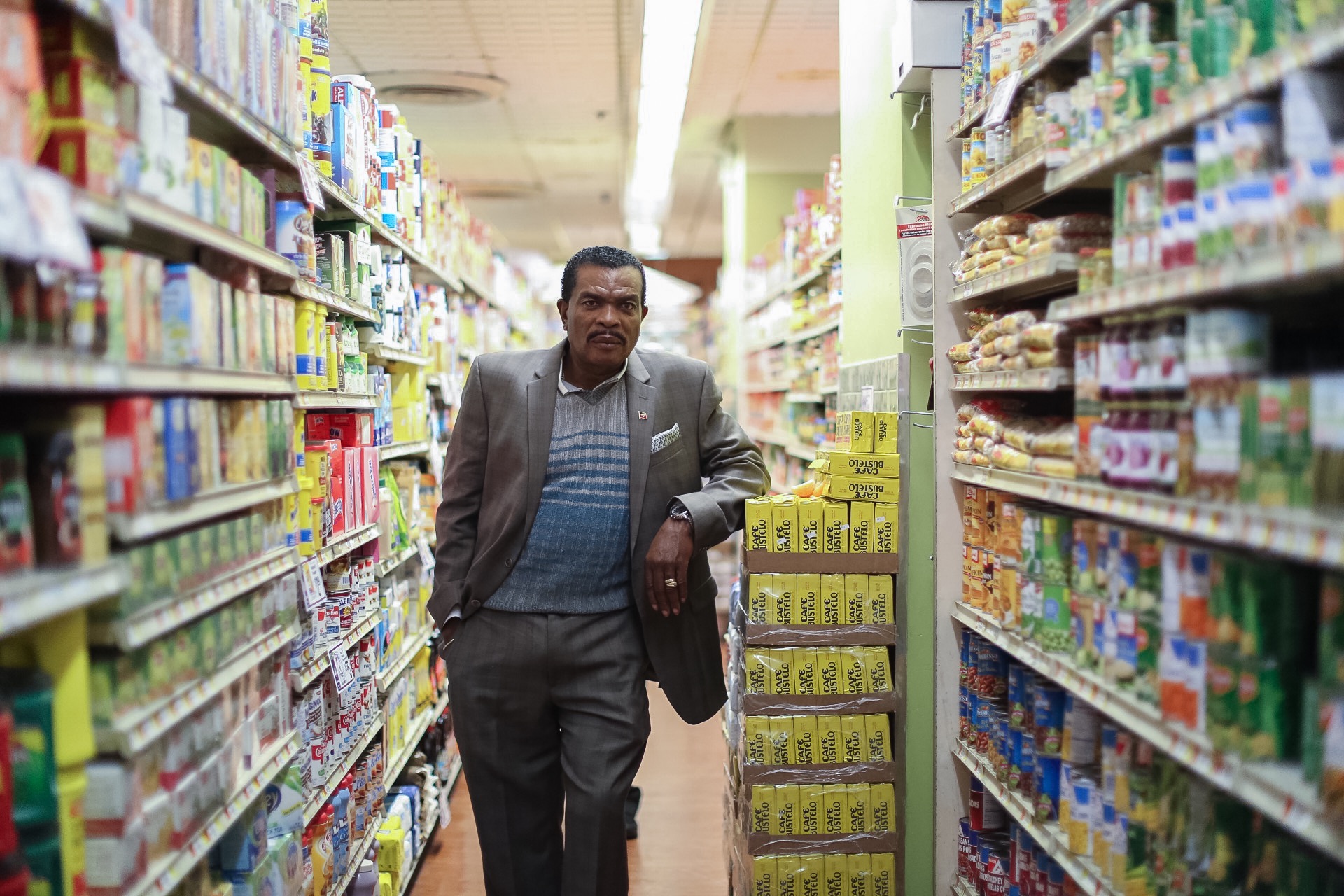
“I’m beside myself because this is the only store I can afford, where I can get a bang for my buck,” agreed Helen Murphy, who lives at Selis Manor, a residence for visually impaired and physically disabled people on W. 23rd St.
The 64-year-old, who receives around $840 a month in Supplemental Security Income and disability benefits, as well as $200 in food stamps, said she wouldn’t be the only local resident who would suffer if the store closes — not least because it is the only area supermarket that delivers groceries for free in a 10-block radius.
“They’re doing us a disservice because we depend on that store,” she said. “If they go out of business, we’ll really feel it.”
Bob Pollak, who has lived on W. 16th St. for more than three decades and has shopped at the store since it opened in 1989, said the hardest hit would be seniors who depend on having an affordable supermarket within walking distance.
“It’s going to be a hardship for a lot of people,” he said. “This was really an essential supermarket. It’s situated perfectly between the Village and Chelsea.”
But there were others who, though outraged by the rent hike, dismissed the protest as futile and political grandstanding for the elected officials, who they said are ignoring a readily available, simple solution.
“The landlord is not the problem,” said Steve Null, a small business advocate and the author of the Small Business Jobs Survival Act. “It’s the elected officials allowing this to go on, to allow small businesses to be at the mercy of the landlord when their lease expires.”
The S.B.J.S.A., which has been stalled in the City Council for years, would establish a right to fair commercial lease renewals.
The bill, which has a bit more than two dozen supporters in the Council, would allow businesses to go through binding arbitration with their landlords to reach a fair rent with a guaranteed 10-year lease extension.
“On the flier [for the protest] it said, ‘Save our Supermarket.’ Why was it singular?” Null said. “What happens to this supermarket is happening to every single business in the Village and on the West Side.
“When they start making a sign that says, ‘Let’s save all of our businesses’ — then it means something.”
Shifting blame away from the landlord might have been an unpopular stance at Sunday’s rally, but Francis, for his part, said he doesn’t entirely disagree.
“It’s not them per se,” he said of Pan Am. “I think it’s just New York.”




